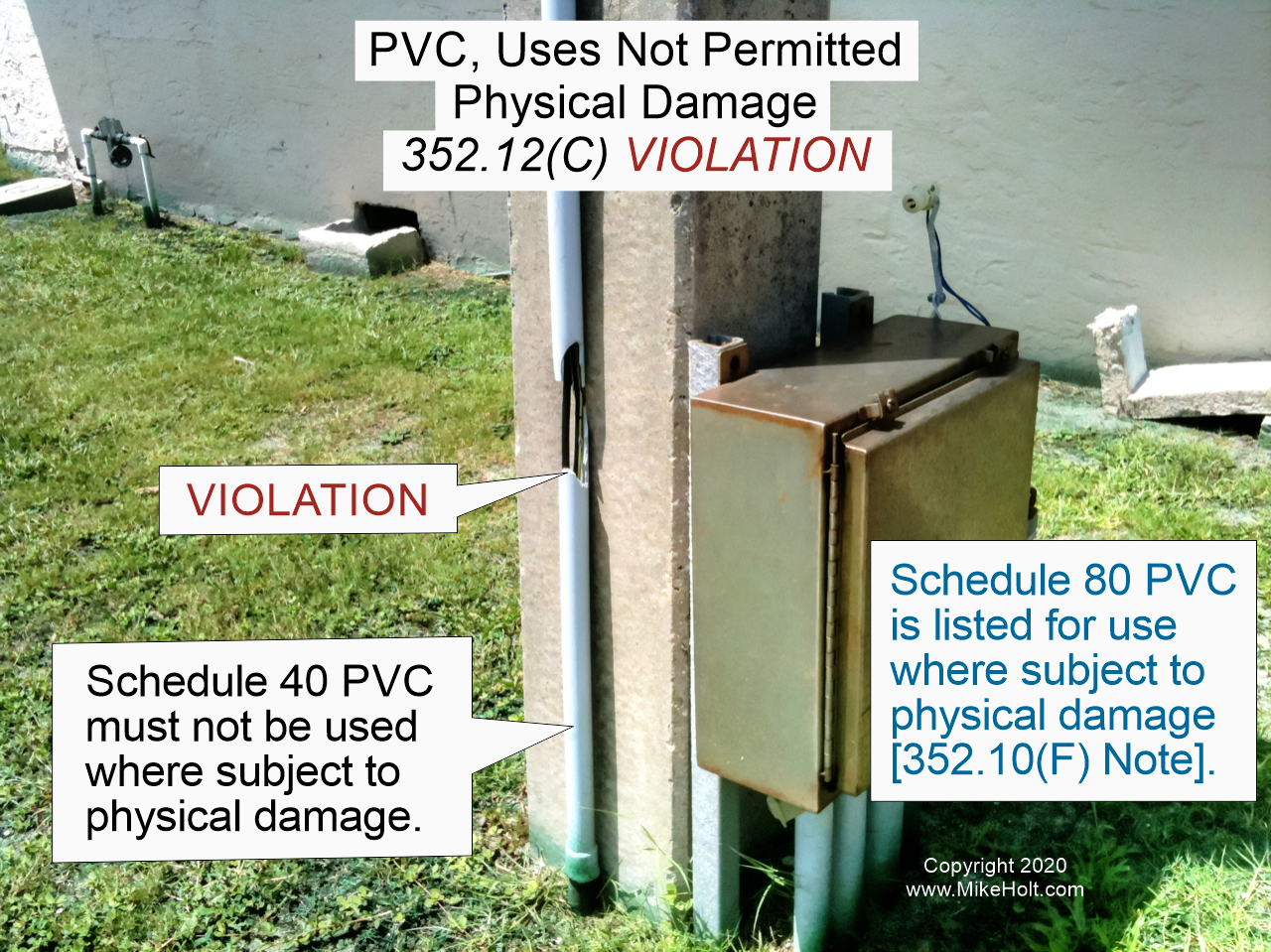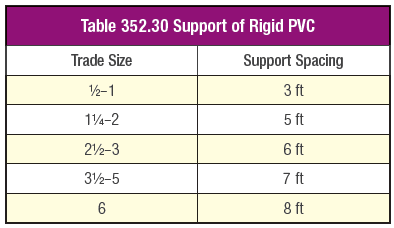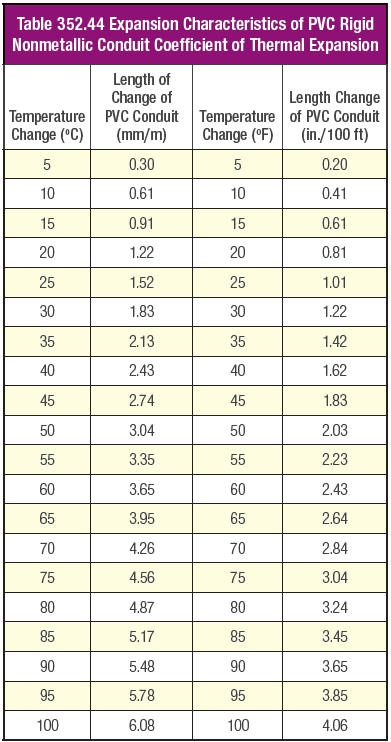|
For EC&M Magazine
By Mike Holt, NEC® Consultant
Here's the follow-up to yesterday's newsletter.
This includes the answers to the questions sent, so you can see how you did.


Figure 01
|
 |
|
Figure 01
|
For EC&M Magazine
By Mike Holt, NEC® Consultant
Here's the follow-up to yesterday's newsletter.
This includes the answers to the questions sent, so you can see how you did.

Note: The answers to these questions are based on the 2020 NEC.
Q1: Under what conditions can PVC not be used and installed?
A1: 352.12 Uses Not Permitted
PVC conduit is not permitted in the following environments:
(A) Hazardous (Classified) Locations. PVC conduit is not permitted to be used in hazardous (classified) locations except as permitted by 501.10(A)(1)(a) Ex, 501.10(B)(6),.503.10(A), 504.20, 514.8 Ex 2, and 515.8.
(B) Support of Luminaires. PVC conduit is not permitted to be used for the support of luminaires or other equipment.
(C) Physical Damage. Type PVC conduit is not permitted to be installed where subject to physical damage unless identified for the application.‚Figure 01
Author's Comment:
â–ºPVC Schedule 40 conduit is not identified for use where subject to physical damage, but PVC Schedule 80 conduit is [352.10(F) Note].
(D) Ambient Temperature. PVC conduit is not permitted to be installed if the ambient temperature exceeds 50°C (122°F).
Author's Comment:
â–ºPVC conduit and fittings are not permitted to be installed in environmental air spaces (plenums) [300.22(C)].
Q2: What is the minimum and maximum PVC trade size permitted?
A2: 352.20 Trade Size
(A) Minimum. PVC conduit smaller than trade size ½ is not permitted to be used.
(B) Maximum. PVC conduit larger than trade size 6 is not permitted to be used.
Q3: What are the requirements for securing and supporting PVC?
A3: 352.30 Securing and Supporting
PVC conduit must be fastened and supported in accordance with (A) and (B) so movement from thermal expansion and contraction is permitted.
(A) Securely Fastened. PVC conduit must be secured within 3 ft of every box, cabinet, or termination fitting, such as a conduit body.
(B) Supports. PVC conduit must be supported at intervals not exceeding the values in Table 352.30, and the raceway must be fastened in a manner that permits movement from thermal expansion or contraction.‚

PVC conduit installed horizontally in bored or punched holes in wood or metal framing members, or notches in wooden members, is considered supported, but the raceway must be secured within 3 ft of termination.
Q4: What is the NEC requirement for expansion fittings on PVC raceways?
A4: 352.44 Expansion Fittings
If PVC conduit is installed in a straight run between securely mounted items such as boxes, cabinets, elbows, or other conduit terminations, expansion fittings must be provided if the expansion or contraction length change (in accordance with Table 352.44) is expected to be ¼ in. or greater.
Author's Comment:
â–ºWhen determining the number and setting of expansion fittings, you must read the manufacturer's documentation. For example, instructions for Carlon® expansion fittings for PVC conduit says that when it has sunlight exposure, 30ºF must be added to the high ambient temperature.

Q5: What are the conditions EMT can be used and installed?
A5: 358.10 Uses Permitted
(A) Exposed and Concealed. EMT is permitted to be used exposed and concealed for the following applications:‚
(1) In concrete in direct contact with the earth in accordance with 358.10(B).
(2) In dry, damp, or wet locations.
(3) In any hazardous (classified) location as permitted by other articles in this Code.
(B) Corrosive Environments.
(1) Galvanized Steel. Galvanized steel EMT, elbows, and fittings can be installed in concrete, in direct contact with the Earth, or in areas subject to severe corrosive influences if protected by corrosion protection and approved as suitable for the condition [300.6(A)].
(D) Wet Locations. Support fittings such as screws, straps, and so on, installed in a wet location must be made of corrosion-resistant material.
Author's Comment:
â–ºIf installed in wet locations, fittings for EMT must be listed for use in wet locations and prevent moisture or water from entering or accumulating within the enclosure in accordance with 314.15 [358.42].
|

